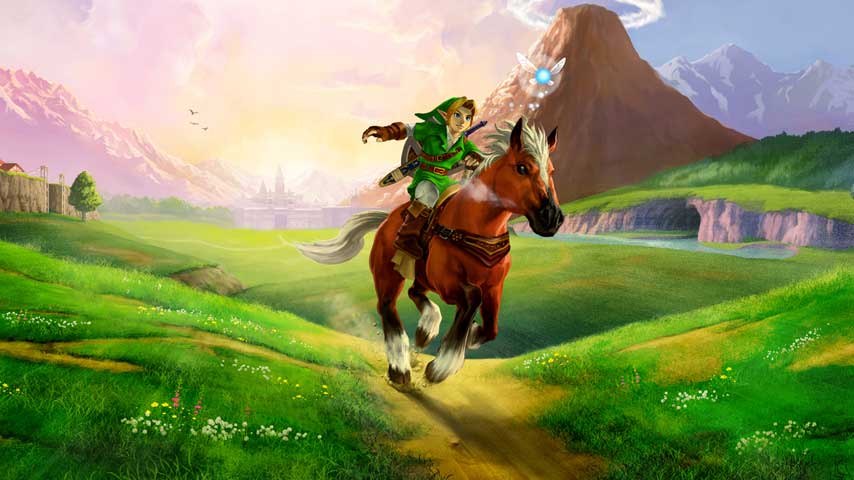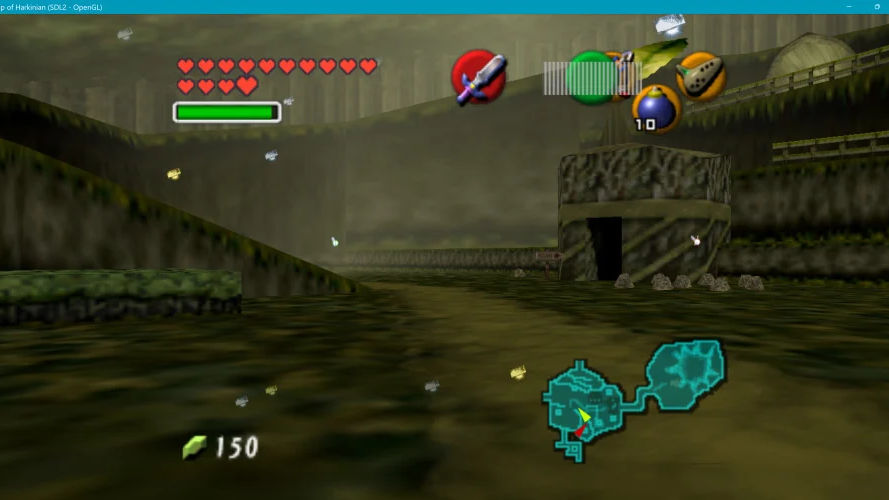Legend of Zelda: Ocarina of Time is coming to PC in a fan-made port
Link and his wind instrument will soon be gracing your PC

Sign up for breaking news, reviews, opinion, top tech deals, and more.
You are now subscribed
Your newsletter sign-up was successful
A fan-made PC port of the classic Nintendo 64 game The Legend of Zelda: Ocarina of Time has almost finished development and is expected to release by mid-February.
The fully functioning PC port comes from Harbour Masters, a group of community developers who say the game is approximately 90% complete (thanks, VGC). They expect to launch its first iteration by the middle of next month, before ironing out any creases for a full release in early April.
As well as bringing Ocarina of Time to PC, the project will let you play the game at multiple resolutions, including widescreen support, run at 60+ FPS, and include a scripting system that supports additional mods, opening the door to future texture packs and more assets.
“Currently all of the game logic runs pretty much flawlessly”, one of the project’s lead developers, Kenix, told VGC. “We have a few assets that aren’t packed correctly in the archive, most specifically skyboxes, and there are still a few graphical errors we are working through. Audio is also not yet decompiled.”
“I’d give it approximately 90%. We’ve been hoping to be complete by the middle of February and use a month or so until April 1st to refine the game before release. We’re hoping to have a public repository available in late February.”
To get around Nintendo’s lawyers, the developers have been careful not to use any of Ocarina of Time’s original, copyrighted assets or code. Instead, the game’s source code has been reverse-engineered and rebuilt from scratch to avoid replicating Nintendo’s property. The developers hope this will clear them from copyright infringement.
“We packed assets into an external archive”, one of the project’s lead developers, Kenix, told VGC. “No assets are linked into the [executable file]. Our belief is that this will prevent a DMCA takedown from Nintendo.”
Sign up for breaking news, reviews, opinion, top tech deals, and more.
Given this workaround, players will need to source Ocarina’s original assets themselves. That’ll involve ripping the assets from a ROM of the game and dumping them into the same directory as the PC port.
The team isn’t stopping at Ocarina of Time, however. The Zelda Reverse Engineering Team, the group who first reverse-engineered the game’s code, is currently decompiling Majora's Mask, preparing it for Harbour Masters to port PC next.
Analysis: wait with bated breath

The developers of the port appear to have taken serious efforts to keep everything above board and avoid being slapped with a copyright infringement notice. But legal wranglings, especially over the copyright of video games, are never clear and the possibility remains that Nintendo won’t take kindly to the group’s efforts.
Take-Two, the parent company of Grand Theft Auto publisher Rockstar, last year announced it was suing a group of modders who decompiled Grand Theft Auto 3 and Vice City. That group reverse-engineered and rebuilt the games in a very similar way to how Harbour Masters are approaching Ocarina of Time.
Similarly, Nintendo has already shown they’re wary of community recreations of its classic titles. In 2020, the company took action against a fan-made PC port of Super Mario 64, citing its unlawful use of copyrighted material, assets, and fictional depictions.
When it comes to Ocarina of Time, a dollop of hesitant optimism is probably best. If Harbour Masters can navigate the complex and onerous world of copyright infringements, they’ll bring what is widely considered not only one of the best Zelda games to PC, but one of the best video games of all time. Nintendo Switch players can grab it from the Nintendo store easily enough, but PC gamers have been left waiting for the past 24 years.
- Find the best Legend of Zelda games to play now

Callum is TechRadar Gaming’s News Writer. You’ll find him whipping up stories about all the latest happenings in the gaming world, as well as penning the odd feature and review. Before coming to TechRadar, he wrote freelance for various sites, including Clash, The Telegraph, and Gamesindustry.biz, and worked as a Staff Writer at Wargamer. Strategy games and RPGs are his bread and butter, but he’ll eat anything that spins a captivating narrative. He also loves tabletop games, and will happily chew your ear off about TTRPGs and board games.